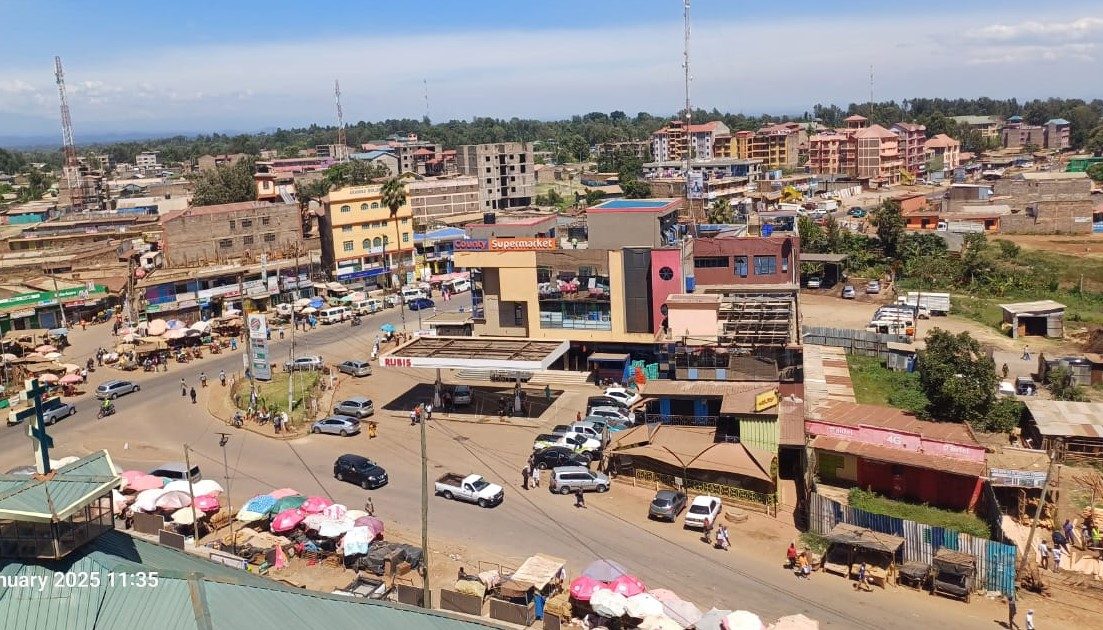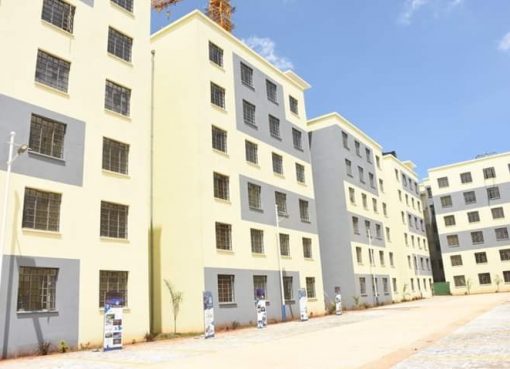Businesses and investments at Kenol town located in southern parts of Murang’a County are expected to intensify with the completion of a Sh1.3 billion sewer system.
The construction of the system, which commenced back in 2021 was completed last month giving locals and especially the business community and investors a hygienic environment to work in.
Kenol town, located along Nairobi – Marua highway has been ranked among the fastest-growing towns in the country considering its proximity to Thika and Nairobi.
In the town which started to develop in the early 1990s, property owners have been relying on septic tanks for waste disposal with unscrupulous residential house owners opting to empty raw sewer along rivers and abandoned quarries, thus putting residents at risk of contradicting diseases.
The undertaking is also expensive as it means the septic tanks have to be emptied regularly using hired exhausters.
One of the residents Lucy Wangari observes that due lack of sewer line, residents had to take precautions for fear of spread of water borne diseases.
“We are used to treating our water before taking it since most of the water we access here is from boreholes and we fear it’s contaminated due to poor disposal of raw sewer and could cause diseases,” said Wangari.
She noted that the sewer project would save the residents from possibility of contracting water borne diseases, adding rental property owners have already started to connect their waste disposal pipes with the sewer line.
Golden Palm Hotel owner Eng. Njau Njoka said the exhaust operators have been exploiting property owners by charging exorbitantly for their services.
“The operators charged Sh12, 000 per truck and Golden Palm hotel has four septic tanks, but with completion of the sewerage system, the hotel was among first premises to be connected to the sewer line, which is definitely a convenient and safe waste disposal system,” said Njoka.
A community leader, Beth Githaiga on her part observes the project will go a long way in uplifting the businesses at Kenol and, thus should extend to nearby towns in Kagunduini ward, which includes the Kabati market.
“Muswasco should consider extending the service to the markets in Kagunduini that can be connected to the sewerage system,” said Githaiga.
Joseph Manyeki, who chairs the Kenol Traders Association, says the sewerage project will fast-track the growth of the town through improved sanitation.
Manyeki, of Seaton agencies’ properties, said the sewerage system has created employment opportunities for the plumbers as their services will be required within the municipality to connect buildings with the sewer line.
“The project has increased the value of the property at Kenol market due to reduced costs of using the exhaust system,” said Manyeki.
An exhauster dealer, Chege Mbatia, said the sewerage project will affect their businesses negatively as they concentrated within the Kenol market, which had more residential buildings operating septic tanks.
Clement Kamau, a member of the Kenol Municipality Board, said the sewerage project will reduce the cost of putting up and draining their sewers through the exhausters.
Public Health Director Muthui Gitonga gave the project a clean bill as he called on the locals to connect with the sewer line.
“This is a milestone to ensure the sanitation of the town is improved as we urge more investors to consider putting up businesses in the town,” said Muthui.
Muswasco Managing Director John Macharia said since completion of the project last month, many premises have been connected with the sewer line.
Macharia explained that the project is a significant change in the upgrading plan of the Kenol Municipality through improved sanitation, with the sewer treatment plant located 10 km away.
“Muswasco is working with the locals and business community to ensure all buildings are connected with the sewer line. The company has also put in place measures to supply 7,500 cubic metres of water per day which is crucial for a disposal mechanism,” said the Director.
Macharia further stated that a sewer system has been a necessity following the growth of the town, even as laying of a pipeline supplying more water from Mareira in Kigumo to Kenol was completed last year.
“Previously, the boreholes were the source of water, thus increasing waterborne diseases. Muswasco has a technical team to ensure the water supply remains uninterrupted.
“The second phase of the sewerage projects is to connect buildings in Kabati and Mithi towns with the sewer line,” he added.
By Bernard Munyao




